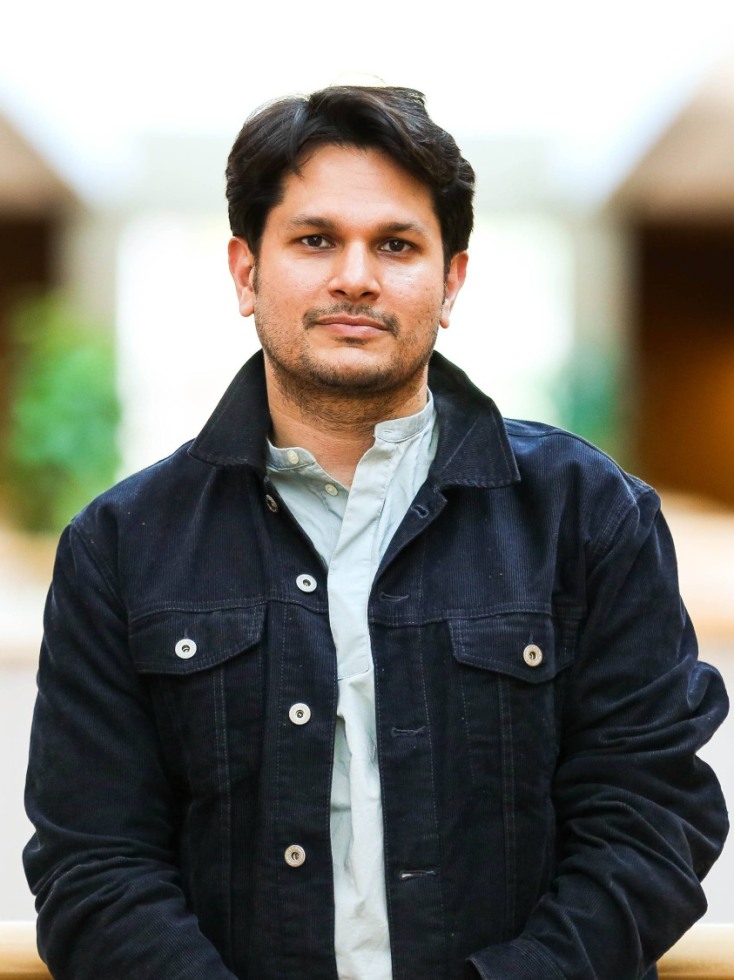"The GPD doesn't push one particular methodology. It gave me the space to pursue a mixed methods research design that combines both quantitative and qualitative research methods to answer provocative questions about the political conditions under which states develop large welfare programs that provide social benefits to previously excluded citizens," he said.
That appealed to Jamil, who appreciated the weekly GPD lecture series that brought speakers from around the world and across the social sciences. "Exposure to that kind of interdisciplinary research in the political economy of development field was significant for my own doctoral training and research," he said, "and subsequently, the GPD offered me useful fieldwork funding to do the initial research."
Initially interested in evaluating informal non-state welfare systems mediated by NGOs and political parties in Pakistan's largest city, Karachi, Jamil focused instead on the state's role in offering new formal welfare systems. Rather than addressing the role of informal welfare systems, Jamil decided to evaluate developing countries' role in adopting welfare programs and to focus chiefly on the consequences of governments giving direct cash transfers to marginalized citizens, primarily women. "The politics of policy adoption around cash transfers are particularly fascinating, in different settings, because they have been adopted by governments with very different political orientations, even those that were initially very critical of this particular form of neo-liberal welfare that provides limited benefits to some citizens," Jamil said.
He added, "We've learned from the policy evaluation literature that giving cash transfers to low-income families doesn't lead them to waste those funds on something frivolous. When families have access to additional income, they typically make investments in household health, education and human capital."
Jamil's research suggests that women, in particular, can benefit from cash transfer programs. Millions of Pakistani women have gained financial literacy and access to a national ID card, which, in principle, offers a gateway to other social and political rights, including their right to vote. "My research looks at how access to welfare can also change excluded citizens' engagement with the state," he said. "For example, will access to this kind of welfare lead women to be more likely to engage in political processes, like voting, access local government or make other demands for other rights? This is key because women have often been so invisible from male-dominated public spaces where routine and local forms of local citizen-state engagement take place."
Reflecting on the GPD, Jamil found the core course, Development Theory, taught by Patrick Heller, especially valuable. "It was critical in offering a broad overview on the political economy of the bureaucratic state in developing countries, surveying literature from across the social sciences and in different regions — Latin America, Sub-Saharan Africa and South Asia," he said.
The summer GPD applied cohort module taught by Catherine Lutz introduced Jamil to ethnographic methodologies, which he said proved especially beneficial as he conducted a national survey of 2,300 respondents across four districts in Pakistan. There, he led focus groups with cash transfer recipients and held qualitative interviews with bureaucrats, politicians and specialists who helped design the program he studied.
Jamil is currently working on a book entitled, "Being Seen by the State: Social Policy and the Politics of Poverty Relief in Pakistan," in which he evaluates how and why states with fragmented democracies and entrenched patronage also sometimes establish pockets of good government through expanding new social safety nets. With plans to workshop the book manuscript early next year in London, Jamil hopes the book will interest a broader audience of scholars and students of political science, public policy and political sociology.
Brown, said Jamil, is a vibrant intellectual community, and Watson's GPD allows scholars to move seamlessly across departments and subject fields. "Watson's GPD faculty, most notably my dissertation advisors Rebecca Weitz-Shapiro, Prerna Singh and Patrick Heller, represent an incredible group of interlocutory scholars with expertise on social policies, state capacity and public policy in Brazil, India and South Africa," he said, "I couldn't have asked for better interlocutors to make sense of my own interest in studying the underlying politics of welfare expansion in Pakistan."
